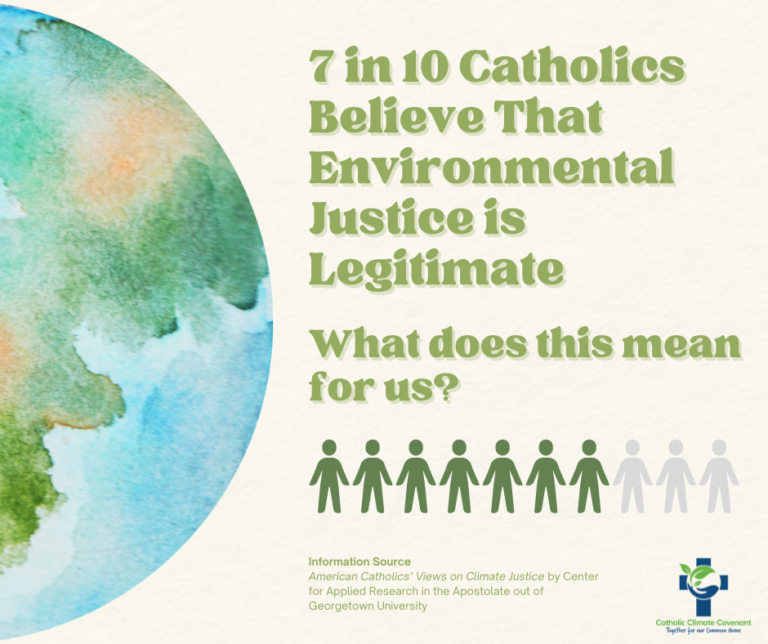This Season of Creation we have a blog from Dr. Laura Anderko PhD RN, and Director of the Mid-Atlantic Center for Children’s Health and the Environment at Villanova University. Her blog explores the interconnectedness of Our Common Home to our health. (Photo credit: Dr. Lois Wessel)
“Nature cannot be regarded as something separate from ourselves or as a mere setting in which we live. We are part of nature, included in it and thus in constant interaction with it.”
– Pope Francis
In the Laudato Si’encyclical Pope Francis captures the interconnectedness of social, economic and environmental justice in protecting Our Common Home. With the encyclical and other knowledge, we are becoming more aware that there is a delicate balance between the health of the Earth and the health of the human race – and that human activities are contributing to global environmental changes.
As a young nurse, the idea that the health of the planet should be considered when we think about human health was an alien concept. The importance of human’s interconnectedness with nature was not taught. There was no science at that time that explored this idea. But we now have that science – full of facts that point to the importance of the environment and protection of Our Common Home as a way to protect our health.
The National Institute for Health Care Management Foundation (NIHCM) offers an infographic that highlights some of key research findingslinking the environment to our health. Air pollution can lead to a variety of illnesses including developmental harm in children, cardiovascular disease, asthma attacks, and lung cancer. Emerging research tells us that air pollution can also increase risk for COVID-19, and those living in polluted communities are more likely to be diagnosed with COVID-19. These include Black and Hispanic communities who are more likely to be exposed to air pollution. They are often carrying the burden created by others. That’s why it is critical that we achieve access to clean air for all.
We need to make a shift from the traditional health care models that are human-centered to earth-centered (eco-centric,) as myself and Stephanie Chalupka stated in Climate Change: An Ecocentric Values Based Caring Approach, International Journal of Human Caring.By protecting Our Common Home, we ultimately protect humanity – and particularly those most vulnerable.
The pandemic has shown us that through changes in our behaviors, such as driving and flying less, that we can reduce harmful air pollution across the world. Reducing air pollution can reduce both climate change and COVID-19 risks.
During these times of profound suffering, that we hope never to repeat, there are abundant opportunities in which we can explore health improvements from environmental protections, by focusing on policies that protect Our Common Home. The NIHCM outlines some important opportunities that include preventing, controlling and reducing air pollutants. Strategies that are eco-centric and nature based include advancing: clean air production; eco-friendly transportation; more green space within communities; and organic agriculture. These will lead to a healthier earth and healthier people.
The Catholic Health Association has numerous publications that focus on the injustices of climate change, including one that addresses the role of the health care sectorin addressing the myriad of health and policy issues related to a warming planet.
It’s important for us to look at how we develop our world and our communities in ways that can be sustained (and not just economically,) because we are intimately connected to our natural world. We don’t live separate from the trees and the water and the birds and the bees. We are connected. And we have the power to make positive changes. This will require sustained action by groups such as the Catholic Climate Covenant – in partnership with others, including the health sector such as the Catholic Health Association, to educate and mobilize.
There are small changes the average person can make every day to reduce their effect on the environment for the sake of the common good. Drive less – walk, bike, or use public more often. Consume less. Advocate for policies that eliminate pollution. Vote for candidates that support clean, healthy environments.
Because climate is a matter of health.


